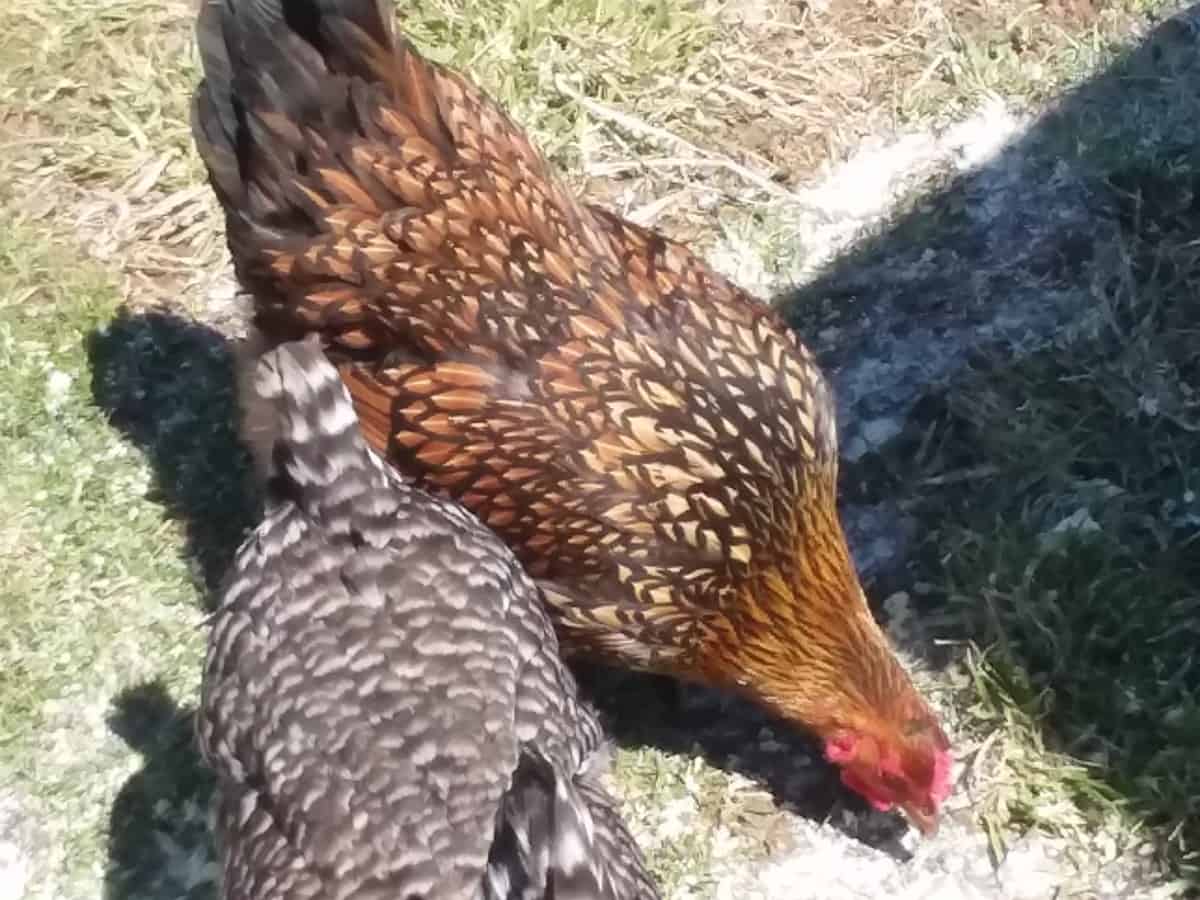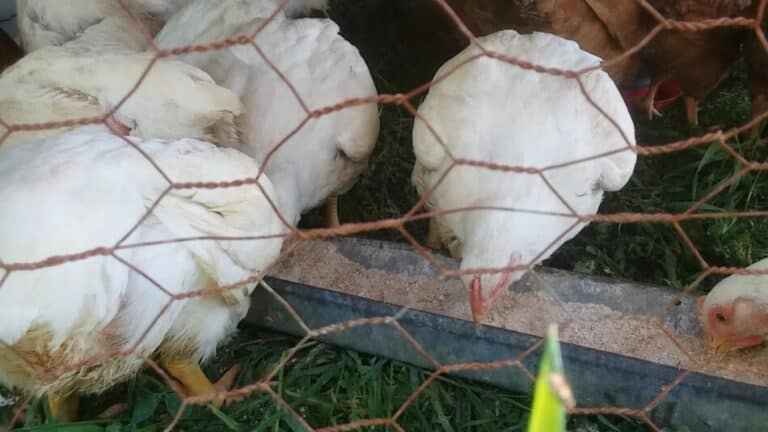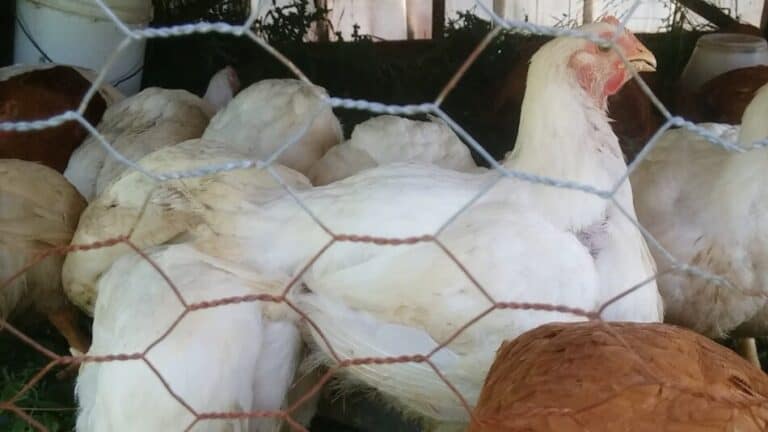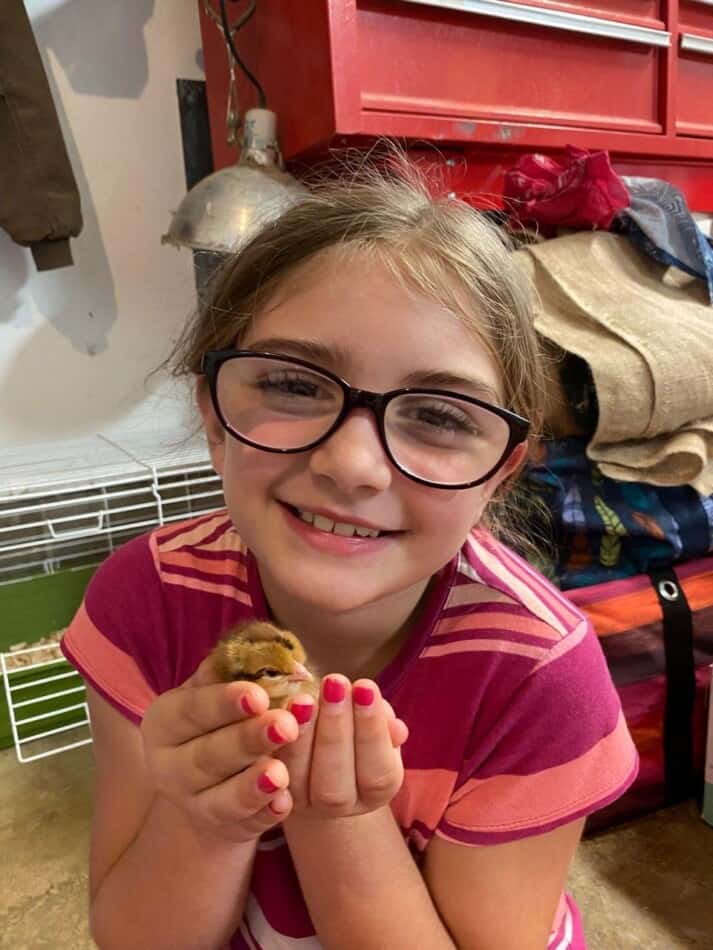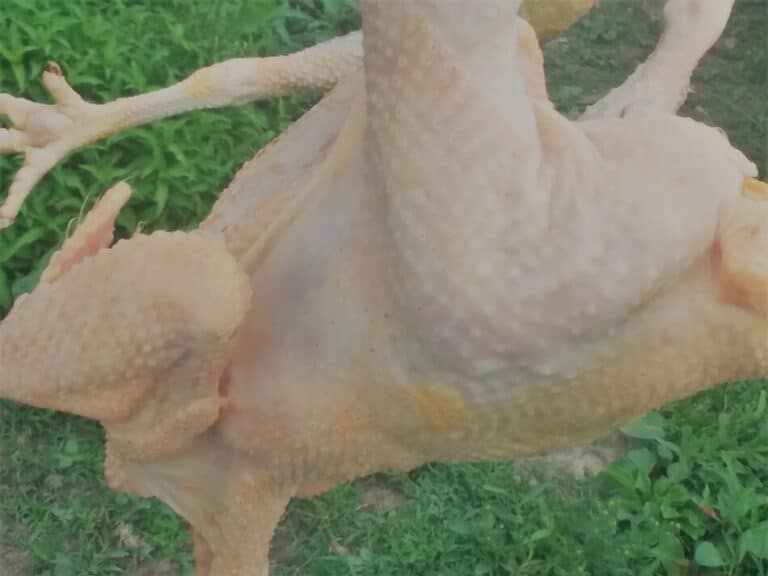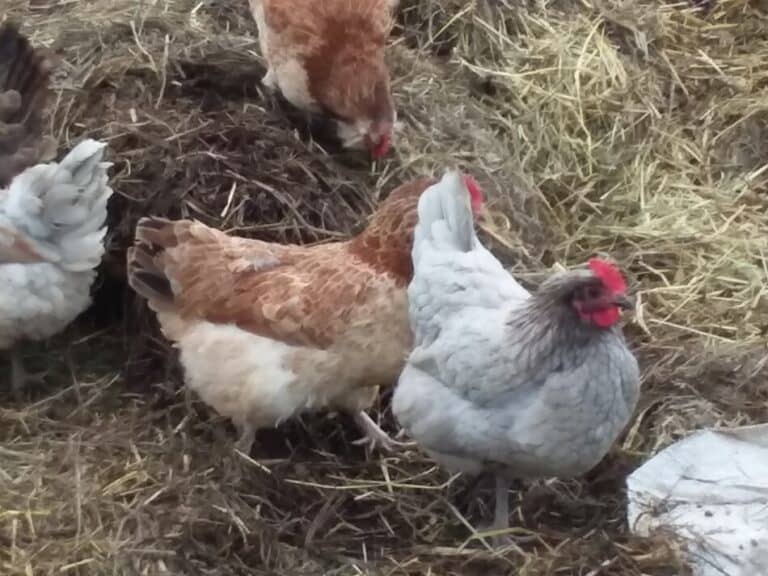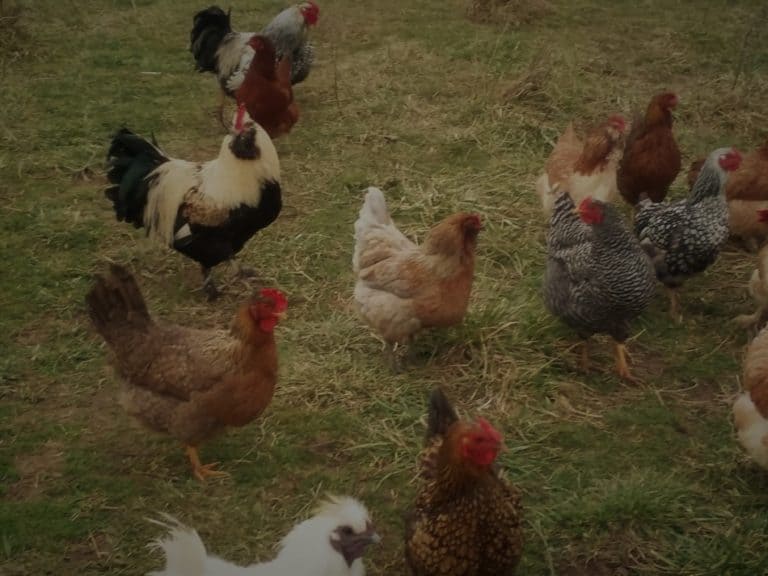Do Your Hens Need A Rooster To Lay Eggs?
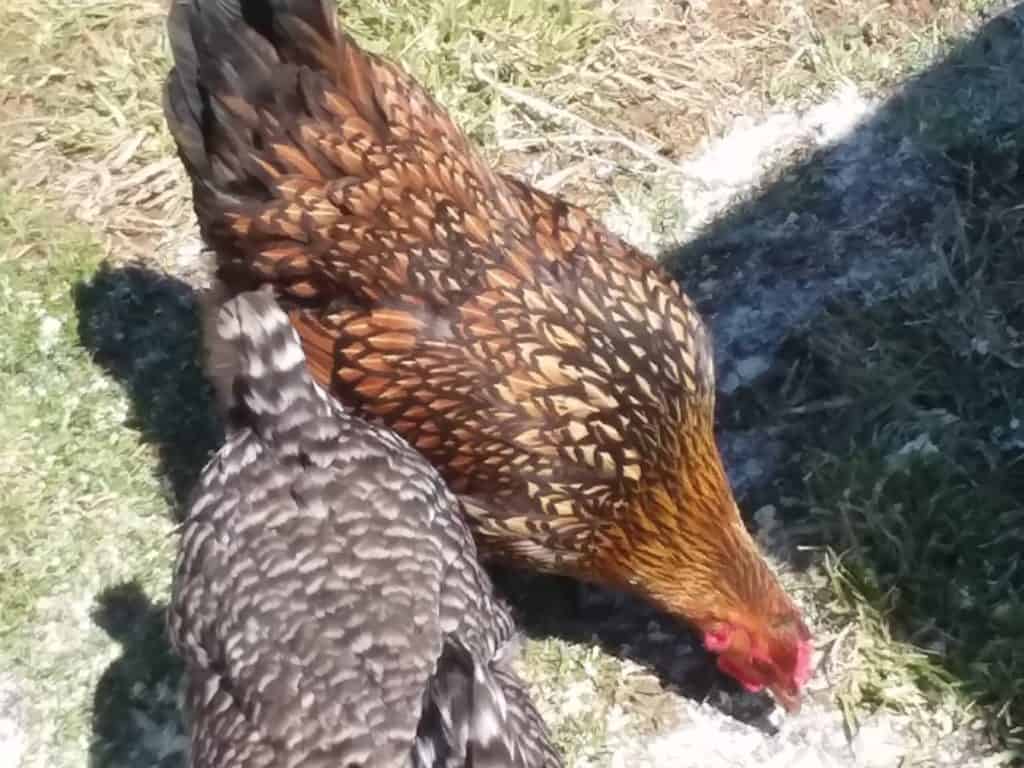
Do hens need a rooster around to lay eggs? This is a big question for the new backyard chicken raiser.
The rooster takes up space that could be used for a hen, but you still want eggs. What can you do?
Hens do not need a rooster in order to lay eggs. It is common for farms that produce eggs to have hens only, since hens will lay eggs without a rooster. However, if you want fertile eggs, you need to have a rooster.
Good news! If you just want the eggs and not the rooster, you are still good to go!
There are many reasons why people would want hens only, like someone with very limited coop or run space.
However, the roosters do have some redeeming qualities that you may not be aware of.
Is Raising Chickens For Eggs Worth It? goes over a budget to get started with your own hens!
Let’s look into the basics of egg laying and a few reasons to consider keeping a rooster anyway.
All hens will lay eggs at maturity
All hens lay eggs. Hens are the female chickens that are laying eggs.
A female that has not laid any eggs yet is called a pullet. Only the females will ever lay eggs, a rooster will never lay an egg.
Since all chickens come from eggs, it only makes sense that all breeds need to lay eggs to make the next generation of chickens.
However, the egg size, shell color, and frequency of laying the eggs varies considerably between breeds.
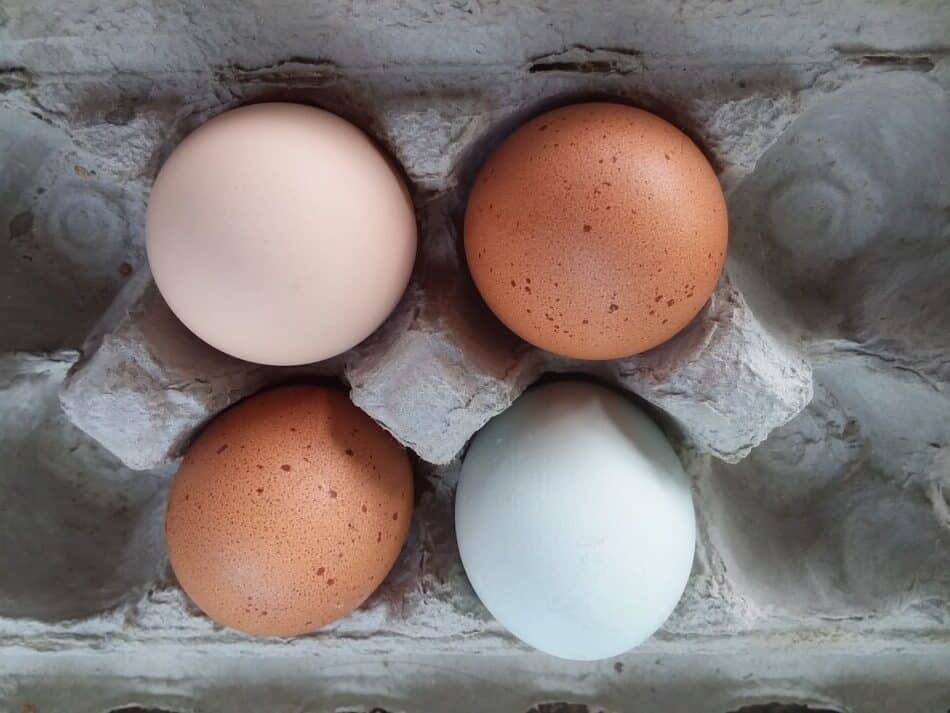
Some hens lay eggs nearly everyday
Most chickens do not lay an egg everyday, it is actually more like every other day.
This is especially true with any hens from a flock selected for show stock.
Chickens from parent lines that are kept and selected for showing are chosen based on physical characteristics like correct feather coloring and patterns or having the ideal comb type not production ability.
Show chickens are fine birds for your farm flock and a necessity to have if you want to do well at the poultry shows.
Show line chickens tend to be much bigger and prettier than the production lines of the same breed just be aware the show lines will not lay as well as the hens selected for egg producing ability.
The super productive breeds like Australorp and hybrid chickens like the Golden Comet will lay an egg nearly every day for about a year until they molt.
20 Calm Breeds Of Chickens gives you some ideas on chicken breeds that will be family friendly birds to have around.
Egg laying will stop when the hen molts
Molting is when the chicken naturally sheds her feathers and grows new plumage.
This normally happens around 18 months of age. During molting the hen will stop laying eggs.
Egg production will resume when she is fully feathered again in about 2 months when her body can start putting energy into egg production again.
Backyard Chicken Care goes over basic chicken care for egg layers. This article covers quite a bit of ground, but is worth the read since it has some good tips.
A hen’s first year has the most eggs
A hen can lay eggs as long as she is healthy.
Her most productive egg laying time is the first season starting when she is 6 months old and continuing on until she has her first molt.
Her second year egg laying tends to produce bigger eggs but not as often as the first year.
Most commercial farms keep hens only until the first molting period then the hens are replaced.
You can choose to keep your hens for as long as you want if you just like having chickens around and want the occasional egg.
To get more eggs, replace older hens
If you are running a business selling the eggs, then you will want to consider replacing your older hens.
Younger hens will allow you to keep up with the demand for eggs from your customers and to get more eggs from the money you are spending on feed.
Older hens can be sold as stewing hens
Who will buy your stewing hens?
Stewing hen is the term used for a hen that is past the most productive part of her life and is being sold into the food chain.
Many cooks love to use older hens to make stock (stock is another word for broth).
Traditional cooks, especially those who moved here from another country, love stewing hens because this is the type of chicken they are used to eating back home.
Chickens can lay eggs in the winter
Egg production will go down in the winter because of the shorter day length.
If you don’t want to lose production keep the lights on in your chicken coop for 14 hours per day to keep the hens laying.
Most people assume it is the cold that stops the hens from laying but it is actually the shorter days and the genetics of your hens.
Eggs won’t completely stop coming they will just be more infrequent.
Another thing to keep in mind is that the eggs will freeze in the winter if not collected soon enough.
Multiple egg collections per day and keeping the nest boxes full of straw will lessen the likelihood of frozen eggs.
For fertile eggs, keep a rooster
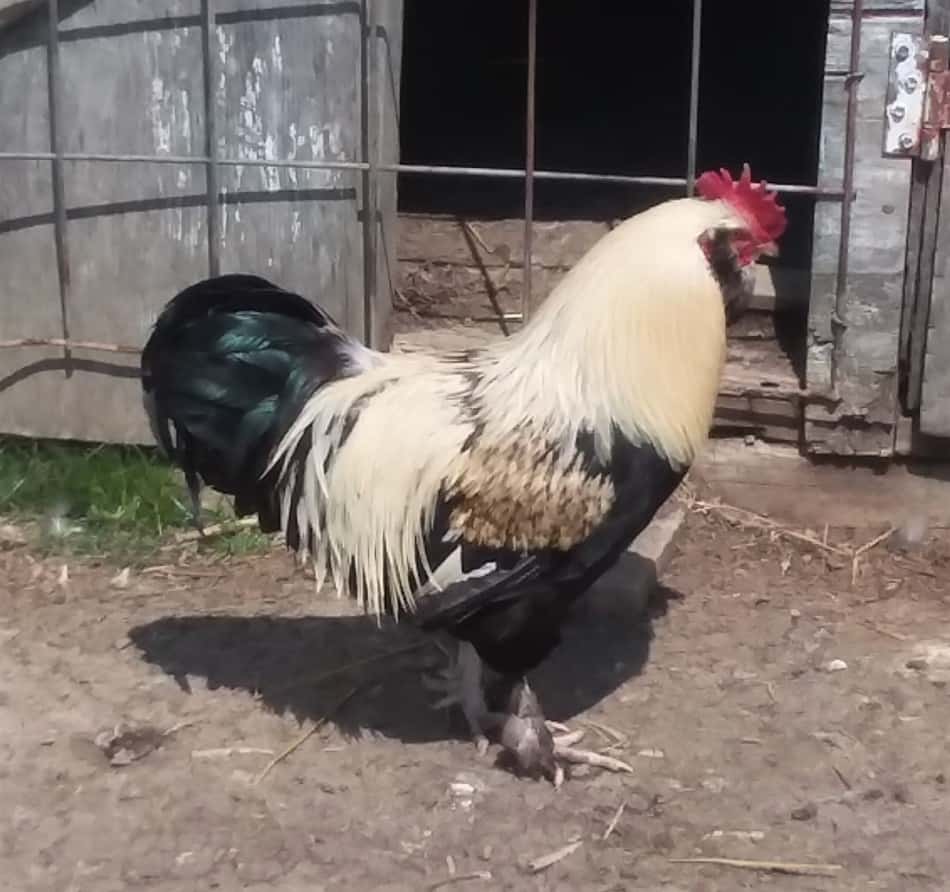
You might want to keep a rooster running with your hens so you can have fertile eggs. Eggs must be fertile to hatch.
In order to raise your own chicks a rooster is required.
Most flock owners will have one rooster for up to 50 hens. If there aren’t enough hens, he starts harassing them.
Separate birds by breed for purebred chicks
If you want purebred chicks and have more than one breed of rooster, the rooster of your choice has to be with the hens for two weeks before you collect the eggs to hatch.
The other rooster must be kept out.
If you don’t care which rooster is the dad then collect eggs any time you are ready.
Roosters can protect hens
We had a Polish rooster fight off a hawk. The hawk had a hold of a hen and the rooster got the hawk to leave.
We just happened to be outside at the right time to see all the action. These particular chickens were White Crested Polish.
If you have seen this breed then you can imagine from the air this hen would look like an appealing target with her bright white head that is easy to pick out from the surroundings.
Plus with all the feathers blocking her view she can’t see danger coming.
The Polish were fun, easy to catch chickens we enjoyed having around however a breed that is more aware of the surrounding would have been less likely to get targeted by the hawk in the first place.
12 Crested Breeds Of Chickens is one of my articles where the Polish and other breeds are listed and described, check it out if crested chicken breeds are interesting to you.
Other than that, we have not seen any indication of a rooster protecting the hens.
It is more like he is guarding his space and doesn’t want a potential rival on his turf.
It may seem like he is protecting them at first but it is actually more like he does not want you, other animals and especially other roosters in his territory.
Roosters stay in the hen house
Most farmers let the rooster run with the hens all day.
Roosters stay in the chicken house at night and get let out to trot around during the day with the hens as well.
Your rooster will live with the hens, inside and outside of the coop, and eat the same feed they do.
Not all eggs can turn into chickens
Only eggs that are fertilized have the potential to turn into chickens but just being fertile doesn’t get you to new chicks.
Any egg that is fertile, well formed and clean can be kept for hatching. It is to your advantage to keep only fresh eggs to hatch.
Hatch eggs that are less than 1 week old
Eggs should be no more than one week old if kept to hatch.
After a week, the hatchability starts to decline. Using fresh eggs that are less than one week old gives you the best chance of success.
Incubating eggs has specific requirements
Now we move to incubation. In order for the eggs to be able to hatch they must be kept at a specific temperature and humidity level for 21 days.
Let a broody hen hatch eggs for you
Your other option to turn eggs into chicks is let the hen do it for you. If a hen is broody (likes to sit on eggs) she knows exactly what to do and when to do it.
You just need to give her the space and let her work. Not all hens will be broody it depends upon the breed.
That being said, we have had hens that were supposed to be non broody hatch out chicks before but that was not typical behavior for the breed.
Get a square incubator at the farm store
The eggs can be incubated by the hen or by you in an incubator. We use the styrofoam incubators you can get at your local farm store.
These work pretty well but do need monitored to stay at the right temperature.
If you don’t have mechanical turners you will need to turn the eggs a few times a day by hand.
There are some great digital incubators available, but we have never used one, so I can’t tell you how well they work.
Hens want 8-10 eggs before setting
Hens like to have 8-10 eggs per clutch. A clutch is the group of eggs she is going to start setting on to hopefully hatch chicks.
Each hen will pick a nesting spot and lay eggs in this spot until she feels there are enough eggs for her to start setting.
When does she have enough eggs? The hen decides how many eggs she wants in the clutch.
She may be happy with a few more or a few less eggs than average.
Related Questions
How many eggs can a chicken lay?
A chicken can lay one egg per day for nearly a year!
Can a chicken lay two eggs at once?
A chicken can only lay one egg at a time.
Occasionally you will find a overly long egg that when cracked open will reveal two yolks in the same shell but she will never lay two eggs at one time.
